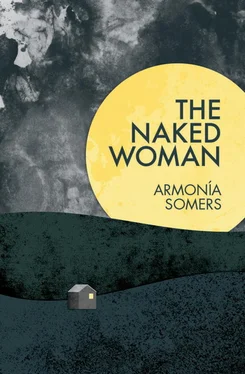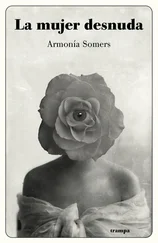The first English translation of this novel serves to remind us of Somers’s importance today, sparking new questions as to how traditional myths, taboos surrounding sexuality and desire, and colonial histories continue to impact our sociopolitical and personal lives. But the questions posed in this novel defy simple solutions. Instead they are open-ended inquiries, as it was Somers’s hope that future readers would continue seeking new clues in her writing. This edition will offer the chance for new audiences to do just that.
This afterword would not have been possible without Latina writer and scholar Mariana Romo-Carmona’s critical input, Latin Americanist scholar Fernando Degiovanni’s bibliographical advice, translator Kit Maude’s comments on Somers’s writing, Lauren Rosemary Hook’s editing and guidance from the beginning, and Argentinian scholar María Cristina Dalmagro’s thorough publications on Armonía Somers’s archive.
Cixous, Hélène, and Catherine Clément. 2008. The Newly Born Woman . Translated by Betsy Wing. Minneapolis: University of Minnesota Press.
Conway, Christopher. 2015. “Gender Iconoclasm and Aesthetics in Esteban Echeverría’s La cautiva and the Captivity Paintings of Juan Manuel Blanes.” Decimonónica: Journal of Nineteenth Century Hispanic Cultural Production 12 (1): 117–33.
Cosse, Rómulo. 1988. “Del horror y la belleza.” In La rebelión de la flor: Antología personal by Armonía Somers, 3–7. Montevideo, Uruguay: Librería Linardi y Risso.
———, ed. 1990: Armonía Somers: Papeles Críticos; Cuarenta años de literatura . Montevideo, Uruguay: Librería Linardi y Risso.
Dalmagro, María Cristina. 2009. Desde los umbrales de la memoria: Ficción autobiográfica en Armonía Somers . Montevideo, Uruguay: Biblioteca Nacional de Uruguay.
Gandolfo, Elvio. 1986. “Un país pequeño, una gran novelista: Para conocer a Armonía Somers.” Clarín , January 9.
Olivera-Williams, María Rosa. 1991. “La mujer desnuda como manifestación de la narrativa imaginaria.” In Armonía Somers: Papeles Críticos: Cuarenta años de literatura , edited by Rómulo Cosse, 159–72. Montevideo, Uruguay: Librería Linardi y Risso.
———. 2012. El arte de crear lo femenino: Ficción, género e historia del Cono Sur. Santiago, Chile: Cuarto Propio.
Picon Garfield, Evelyn. 1987. Women’s Voices from Latin America: Interviews with Six Contemporary Authors. Detroit, MI: Wayne State University Press.
Rama, Ángel. 1972. La generación crítica: 1939–1969. Montevideo, Uruguay: Arca.
Reyes Moreira, Julio. 1959. “Dilema de una mujer singular: Armonía Etchepare de Henestrosa; Maestra y escritora.” Mundo Uruguayo , January 1: 25.
Risso, Álvaro. 1990. “Un retrato para Armonía (cronología y bibliografía).” In Armonía Somers: Papeles Críticos: Cuarenta años de literatura , edited by Rómulo Cosse, 247–83. Montevideo, Uruguay: Librería Linardi y Risso.
Showalter, Elaine. 1985. The New Feminist Criticism: Essays on Women, Literature, and Theory . New York: Pantheon Books.
Somers, Armonía. 1950. “La mujer desnuda.” Clima: Cuadernos de arte 1 (2–3).
———. 1953. El derrumbamiento . Montevideo, Uruguay: Ediciones Salamanca.
———. 1988. La rebelión de la flor: Antología personal . Montevideo, Uruguay: Librería Linardi y Risso.
———. 2009. La mujer desnuda. 4th ed. Buenos Aires, Argentina: Cuenco de Plata.
———. 2010. Solo los elefantes encuentran mandrágora . Buenos Aires, Argentina: Cuenco de Plata.
ABOUT THE AUTHOR AND TRANSLATOR
ARMONÍA SOMERS(1914–1994), the pen name of Armonía Liropeya Etchepare Locino, was a Uruguayan feminist, pedagogue, novelist, and short story writer. This is her first book to be translated into English.
KIT MAUDEis a Spanish-to-English translator based in Buenos Aires. His translations have been featured in Granta , the Literary Review , and the Short Story Project , among others.
More Translated Literature from the Feminist Press
Augustby Romina Paula,
translated by Jennifer Croft
La Bastardaby Trifonia Melibea Obono,
translated by Lawrence Schimel
Beijing Comradesby Bei Tong,
translated by Scott E. Myers
Chasing the King of Heartsby Hanna Krall,
translated by Philip Boehm
The Iliac Crestby Cristina Rivera Garza,
translated by Sarah Booker
King Kong Theoryby Virginie Despentes,
translated by Stéphanie Benson
Pretty Thingsby Virginie Despentes,
translated by Emma Ramadan
The Restlessby Gerty Dambury,
translated by Judith G. Miller
Testo Junkie: Sex, Drugs, and Biopolitics in the Pharmacopornographic Eraby Paul B. Preciado,
translated by Bruce Benderson
Thérèse and Isabelleby Violette Leduc,
translated by Sophie Lewis
Translation as Transhumanceby Mireille Gansel,
translated by Ros Schwartz
Women Without Menby Shahrnush Parsipur,
translated by Faridoun Farrokh
THE ILIAC CREST
Cristina Rivera Garza
Translated by Sarah Booker
Afterword by Elena Poniatowska
On a dark and stormy night, two mysterious women invade an unnamed narrator’s house, where they proceed to ruthlessly question their host’s identity. While the two women are strangely intimate, even inventing a secret language, they harass the narrator by claiming repeatedly that they know his greatest secret: that he is, in fact, a woman. As the increasingly frantic protagonist fails to defend his supposed masculinity, he eventually finds himself in a sanatorium.
Published for the first time in English, this Gothic tale destabilizes male-female binaries and subverts literary tropes.
CRISTINA RIVERA GARZAis an award-winning author, translator, and critic. Her books, originally written in Spanish, have been translated into multiple languages. She is the recipient of the Roger Caillois Award for Latin American Literature (2013), the Anna Seghers-Preis (2005), and the only two-time winner of the International Sor Juana Inés de la Cruz Prize (2001; 2009). She received her PhD in 2012 in Latin American history from the University of Houston, where she is currently Distinguished Professor in Hispanic Studies.
SARAH BOOKERis a Spanish-to-English translator and PhD candidate at University of North Carolina, Chapel Hill. Her research revolves around contemporary Latin American narratives and translation studies. She is particularly interested in the relationship between translation and identity in the region, as well as fictional representations of translation.
THÉRÈSE AND ISABELLE
Violette Leduc
Translated by Sophie Lewis
Afterword by Michael Lucey
Censored for half a century for its vivid depiction of female sexuality, this novella follows two young women in the obsessive and at times frightening throes of a first love affair. Thérèse and Isabelle must navigate their schoolgirl relationship in secret, sneaking away from repressive boundaries to explore the limits of friendship and sexual pleasure.
Читать дальше












